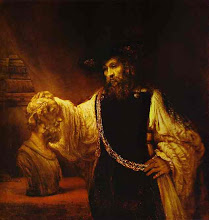This is my response to Shelby Cade’s excellent blog post titled “Our limited friend” on Flatland Apologetics:
Nice article Shelby. I often hear naturalists say there is as much proof for Santa Clause, ferries or unicorns as there is for God. We actually can rule out some of these entities with the Santa Principle which says that a person is justified in believing that X does not exist if all of these conditions are met:
1. The area where evidence would appear, if there were any, has been comprehensively examined, and
2. All of the available evidence that X exists is inadequate, and
3. X is the sort of entity that, if X exists, then it would show.
This works for supposed physical entities such as Santa, unicorns and Sasquatch because we should be able to find them in the world but haven’t been able to. This doesn’t rule out God because he is immaterial being that can’t be detected by our senses or current technology. We also can’t rule out the multiverse because we have no way to perceive any universe besides our own.
Immateriality is a crucial attribute of God because in a pre big bang world with no physical building blocks a god composed of physical matter couldn’t exist. An omnipotent, immaterial necessary being is needed to spark the big bang and form the universe.
Wednesday, April 6, 2011
Tuesday, April 5, 2011
Dr. William Lane Craig vs. Dr. Lawrence Krauss
On March 30th, at North Carolina St. University, Christian philosopher Dr. William Lane Craig debated theoretical physicist Dr. Lawrence Krause on the question of is there is evidence for God. You can watch the debate here (skip to 16:00 for the debate introduction of 20:00 for the start of the debate).
The contrasting style and expertise of the debaters was interesting. Craig is a polished debater while Krause is not. Craig’s specialty is philosophy while Krause was uncomfortable talking about anything by physics.
The debate really hinged upon Craig’s assertion that a hypothesis is more probable given certain facts then it would without them. He formulates this with Bayes’ theorem Pr (H| E & B) > Pr (H|B) where H=a hypothesis; E=some specific evidence; B=our background information. He then goes on to present his usual five arguments:
1. The Leibnizian cosmological argument.
2. The Kalam cosmological argument.
3. The fine-tuning of the universe for intelligent life.
4. Objective moral values and duties in the world.
5. The historical facts concerning Jesus of Nazareth.
The contrasting style and expertise of the debaters was interesting. Craig is a polished debater while Krause is not. Craig’s specialty is philosophy while Krause was uncomfortable talking about anything by physics.
The debate really hinged upon Craig’s assertion that a hypothesis is more probable given certain facts then it would without them. He formulates this with Bayes’ theorem Pr (H| E & B) > Pr (H|B) where H=a hypothesis; E=some specific evidence; B=our background information. He then goes on to present his usual five arguments:
1. The Leibnizian cosmological argument.
2. The Kalam cosmological argument.
3. The fine-tuning of the universe for intelligent life.
4. Objective moral values and duties in the world.
5. The historical facts concerning Jesus of Nazareth.
Subscribe to:
Comments (Atom)





